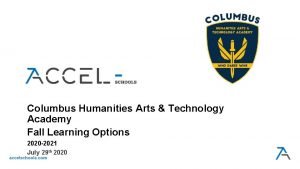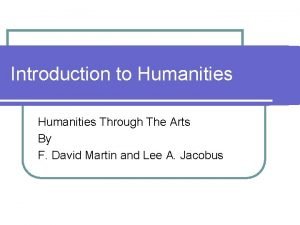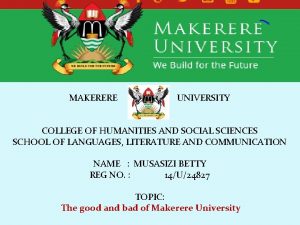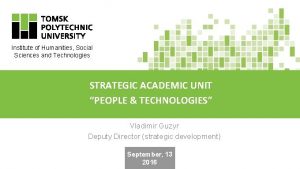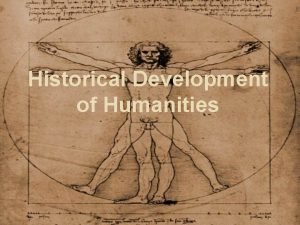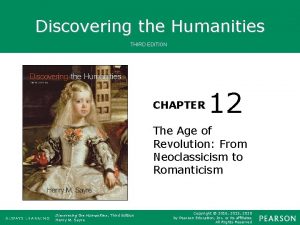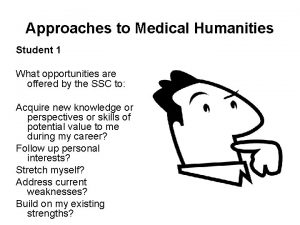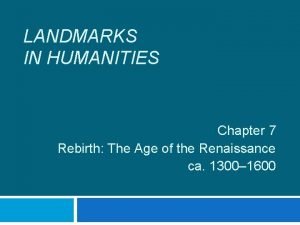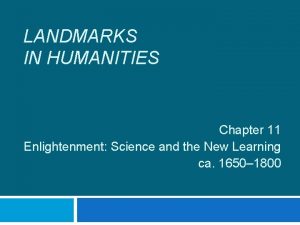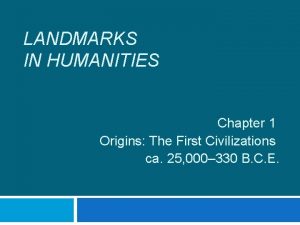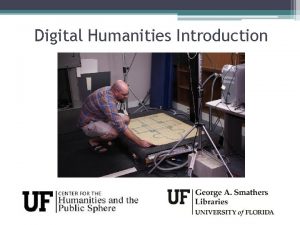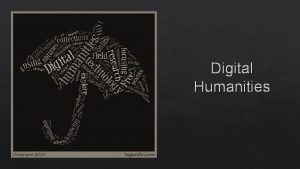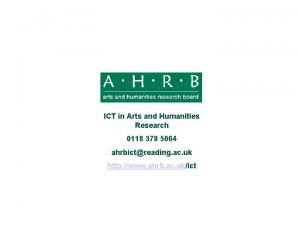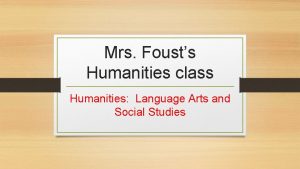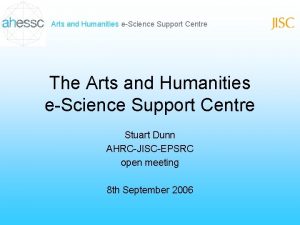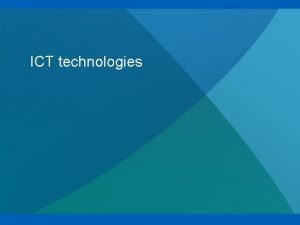ICT in Arts and Humanities Research AHRCEPSRCJISC Arts












- Slides: 12

ICT in Arts and Humanities Research AHRC-EPSRC-JISC Arts and Humanities e-Science Intitiative Research Grants and Studentships Scheme

ICT in Arts and Humanities Research Information Meeting Agenda • David Robey (AHRC), Introduction • Ian Broadbridge (AHRC), Application Process • James Farnhill ( JISC), related JISC schemes • Stuart Dunn (AHESSC), Arts and Humanities e-Science Support Centre • Sheila Anderson (AHDS), ‘Scoping e-science and e-social science developments’ • Questions and answers Record of Q&A and this PP presentation at http: //www. ahrc. ac. uk/e-science

ICT in Arts and Humanities Research Steering Committee David Robey (Chair: Director of the ICT in Arts and Humanities Research Programme) Alison Allden (University of Bristol) David de Roure (University of Southampton) Robert Gaizauskas (University of Sheffield) Derek Hill (University College London) Rob Procter (University of Manchester) Seamus Ross (University of Glasgow) Anne Trefethen (University of Oxford) with officers from AHRC, EPSRC and JISC supported by Heather Haskins (ICT Programme Administrator) JISC Arts and Humanities e-Science Support Centre (AHESSC)

ICT in Arts and Humanities Research ‘e-Science’ stands for the development of advanced technologies for research collaboration and resource sharing across the Internet. • Grid technologies, and technologies integrated with them (service grid) • Not e-Research

ICT in Arts and Humanities Research Aims of the scheme • to advance research in the A&H through the use and development of e-Science technologies – build up the infrastructure of tools and resources for ICTbased research in the A&H, – and to demonstrate the value of such tools and resources through the achievement of significant A&H research findings.

ICT in Arts and Humanities Research Balance between development and research findings may vary from one project to another • the development of e-Science tools or resources specifically for research in the arts and/or humanities – must present a significant research or development challenge in terms of the technology • and/or the achievement of significant research findings in an arts or humanities subject using e-Science technologies. – must achieve significant research findings • panel expects to fund a selection of both types of project

ICT in Arts and Humanities Research The Panel will seek fund a broad range of activities, • covering a number of different technologies and subject areas, • including practice-led research in the creative and performing arts. Projects of varying size, which may last for a period of from six months up to a maximum of four years • maximum FEC of £ 400, 000 (plus any studentships)

ICT in Arts and Humanities Research Projects must involve an appropriate level of collaboration between ICT specialists and arts or humanities scholars • expressed in terms of time commitment • and demonstrate that their participants possess collectively the appropriate level of expertise in both areas.

ICT in Arts and Humanities Research e-Science c. Community engagement • Applicants should also show plans to engage with the appropriate sections of the broader e-Science community • and awareness of, and willingness to engage with, the scientific and technical standards appropriate to their project work – liaise and cooperate where appropriate with other U. K. agencies interested in their area of work

ICT in Arts and Humanities Research Evaluation and dissemination • clear plans for the evaluation and dissemination of their work; dissemination activities should include the AHDS and AHESSC • short updates on progress every six months • end of the award period an evaluation report • project website within 3 months of starting

ICT in Arts and Humanities Research See also • six AHRC e-Science workshops • three EPSRC e-Science demonstrator Sheila Anderson, ‘Scoping e-science and e-social science developments and their value to the arts and humanities’ • views expressed not necessarily those of the funders All at http: //www. ahrc. ac. uk/e-science

ICT in Arts and Humanities Research Related funding opportunities • • JISC e-Infrastructure Programme JISC Virtual Research Environments Programme
 Columbus humanities arts and technology academy
Columbus humanities arts and technology academy Art and humanities endorsement
Art and humanities endorsement Arts and humanities endorsement
Arts and humanities endorsement Humanities through the arts
Humanities through the arts Creative arts grade 8 term 3
Creative arts grade 8 term 3 College of humanities and social sciences
College of humanities and social sciences Humanities and social sciences
Humanities and social sciences Historical development of humanities
Historical development of humanities Monk by the sea analysis
Monk by the sea analysis What is medical humanities
What is medical humanities Landmarks in humanities
Landmarks in humanities Landmarks in humanities
Landmarks in humanities Landmark in humanities 5th edition
Landmark in humanities 5th edition
